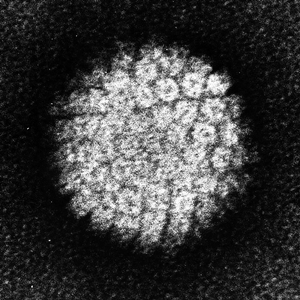Advaxis Inc., a biopharmaceutical company in Princeton, New Jersey, began dosing the first patient in clinical trial testing a therapy that harnesses the immune system to treat head and neck cancer caused by the human papillomavirus, or HPV. The therapy is designed as part of a therapy strategy that includes robotic surgery to remove the cancer.
HPV is usually associated with cancer in the genital regions, but can also affect the mouth and throat. The Centers for Disease Control and Prevention say some 8,400 people in the U.S. are diagnosed each year with mouth or throat cancers, which are three times more common in men than women.
The immunotherapy being tested, with the code-names ADXS-HPV or ADXS11-001, targets tissue cells deformed and made malignant by HPV. The therapy gets into cells with antigens that respond to the proteins associated with the unchecked proliferation of cancer cells caused by HPV infections. The therapy generates infection-fighting white blood cells, known as T-cells, that attack the tumors.
In this mid-stage clinical trial, ADXS-HPV will be tested with transoral robotic surgery to remove the tumors. In transoral robotic surgery, the surgeon uses 3-D imaging and can guide the instruments to operate in multiple directions to remove the cancerous tissue. The trial is taking place at the Mount Sinai hospital in New York that offers transoral robotic surgery.
Even with the surgery, says Advaxis, the follow-up chemotherapy and radiation can be disfiguring, as well as interfere with the patient’s ability eat and swallow. The goal of the immunotherapy in this case is to reduce the need for follow-up chemo- and radiation therapy, and thus improve the outcomes for survivors of the procedure.
The trial aims to enroll 25 patients with HPV-associated mouth and throat cancers, with 15 patients receiving both the ADXS-HPV immunotherapy and transoral robotic surgery, and 10 patients receiving only the surgery. For those in the test group, the immunotherapy will be administered before the surgery. Researchers from Mount Sinai will test blood samples from the patients at various intervals from 15 days to one year after surgery for changes in immune response to the cancer-associated proteins, as well as assess the safety of the therapy.
Advaxis says mid- and late-stage clinical trials for ADXS-HPV are underway testing the therapy with patients having genital and anal cancers from HPV. An early-stage trial in the U.K. testing the safety of ADXS-HPV alone as a treatment for HPV-associated head and neck cancer is recruiting patients.
Read more:
- Early Trial Tests Stem Cell Immunotherapy for Liver Cancer
- Immunotherapy Shown Effective in Brain Tumor Animal Test
- Trial Tests Chemo-Immunotherapy with Pancreatic Cancer
- Trial to Test Immunotherapy with Children’s Solid Tumors
- FDA Approves Melanoma Immunotherapy Drug
* * *


 RSS - Posts
RSS - Posts
You must be logged in to post a comment.